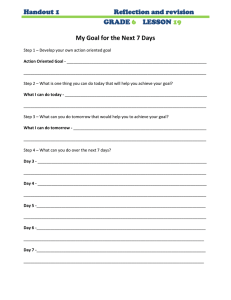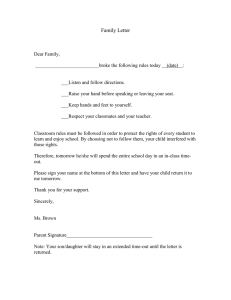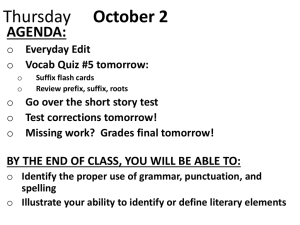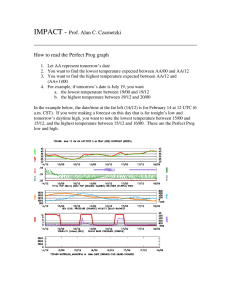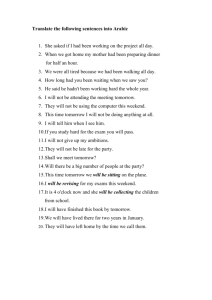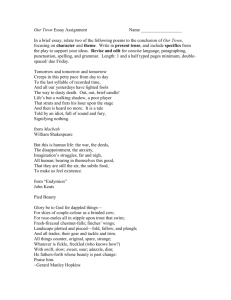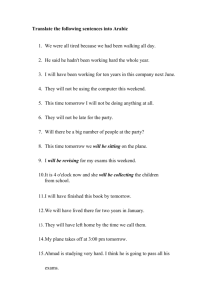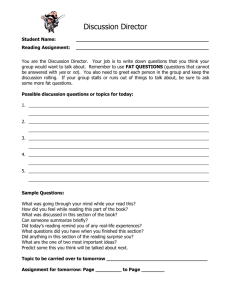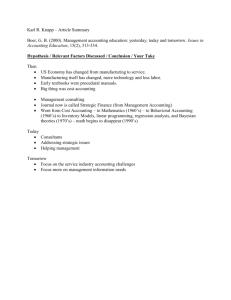English Grammar: Reported Speech & Synonyms Exercise
advertisement
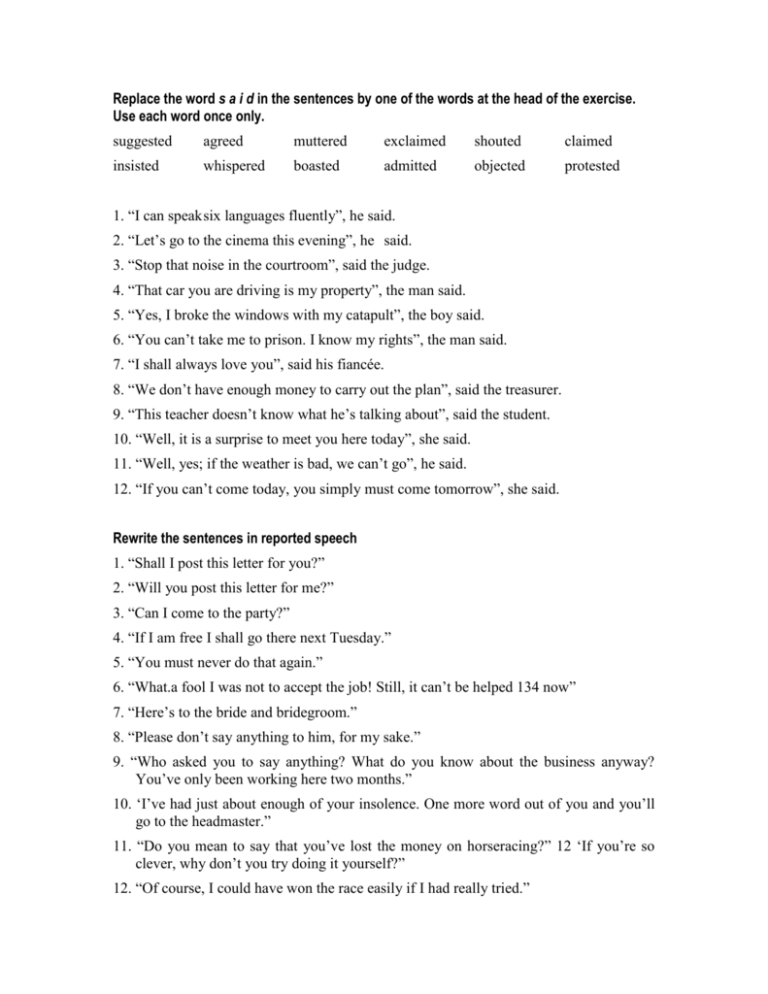
Replace the word s a i d in the sentences by one of the words at the head of the exercise. Use each word once only. suggested agreed muttered exclaimed shouted claimed insisted whispered boasted admitted objected protested 1. “I can speak six languages fluently”, he said. 2. “Let’s go to the cinema this evening”, he said. 3. “Stop that noise in the courtroom”, said the judge. 4. “That car you are driving is my property”, the man said. 5. “Yes, I broke the windows with my catapult”, the boy said. 6. “You can’t take me to prison. I know my rights”, the man said. 7. “I shall always love you”, said his fiancée. 8. “We don’t have enough money to carry out the plan”, said the treasurer. 9. “This teacher doesn’t know what he’s talking about”, said the student. 10. “Well, it is a surprise to meet you here today”, she said. 11. “Well, yes; if the weather is bad, we can’t go”, he said. 12. “If you can’t come today, you simply must come tomorrow”, she said. Rewrite the sentences in reported speech 1. “Shall I post this letter for you?” 2. “Will you post this letter for me?” 3. “Can I come to the party?” 4. “If I am free I shall go there next Tuesday.” 5. “You must never do that again.” 6. “What.a fool I was not to accept the job! Still, it can’t be helped 134 now” 7. “Here’s to the bride and bridegroom.” 8. “Please don’t say anything to him, for my sake.” 9. “Who asked you to say anything? What do you know about the business anyway? You’ve only been working here two months.” 10. ‘I’ve had just about enough of your insolence. One more word out of you and you’ll go to the headmaster.” 11. “Do you mean to say that you’ve lost the money on horseracing?” 12 ‘If you’re so clever, why don’t you try doing it yourself?” 12. “Of course, I could have won the race easily if I had really tried.” 13. “Go away! Can’t you see I’m busy?” 14. “Give me the keys to the safe or you’ll regret it.” 15. “If I were you, I would say nothing about it.” 16. “I’m just going out, so I can’t speak to you now.” 17. I was just going out, but since you’ve come such a long way to see me, I suppose I’d better put off my plans till tomorrow.” 18. “If I were free next week, I would visit you.” 19. “Are you free tomorrow?” 20. “This machine underwent exhaustive trials before it was placed on the market.” 21. “Not until later did I understand the full significance of his words.” 22. “As I was leaving the house, it started to rain.” 23. “If anyone is at fault, it is you yourself.” 24. “Would you be so kind as to show me the way to this hotel?” 25. “When can tourists visit the Houses of Parliament and the Old Bailey?” Rephrase the following paragraphs, after the second sentence, in free indirect speech: William Plomer disliked telephones. He once told this story. He said “I heard a wellknown actor on the radio yesterday.” He was asked: “Suppose you were left alone on a desert island and you were allowed to take just one luxury with you, what would you choose?” “I should take a telephone,” he said, “and I should push the wire into the sand, and my greatest pleasure would be to sit and look at it, and to think: It will never ring and I shall never have to answer it.” Forster looked about him. He was all alone on a dark, cold railway platform. “Where am I?” he thought. “This is Nassenheide, isn’t? Or have I got off the train at the wrong station? No, I haven’t. There, in the dim lamp-light, I can see the sign: Nassenheide. Then why is there no one to meet me? Surely they must have had my telegram. How can they leave me to find my own way, with all my luggage, in the pitch dark and driving rain? Well, I will put the suitcases in the waiting-room, and walk. But where shall I walk to? I remember now. They wrote to tell me the house was up the hill about a mile from the station. Even then, I can’t believe they expected me to find my way to a strange house on a night like this.

